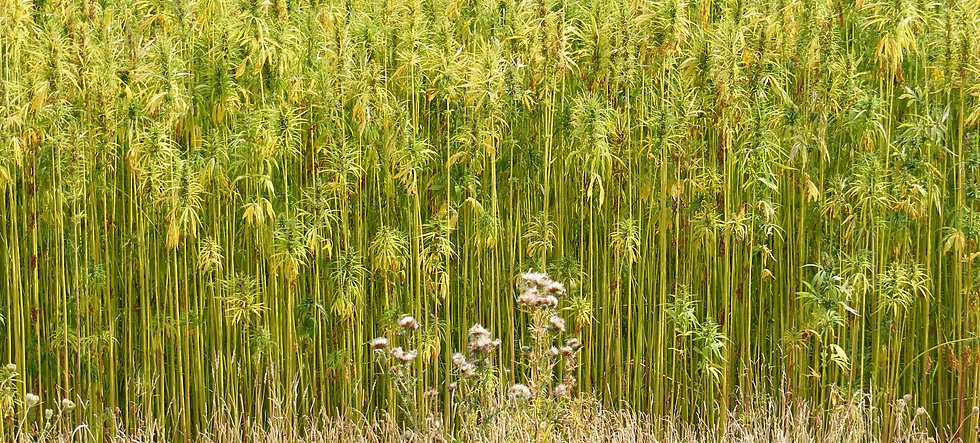Source: columbustelegram.com

The lowly hemp plant could be on the verge of transforming from ditch weed to cash crop in Nebraska.
The non-psychoactive cousin to marijuana, hemp has been an illegal crop for decades even though food, oil, lotions, soaps, rope, textiles and other products made from it are legal and gaining popularity in the United States.
But in the wake of the 2014 Farm Bill, which included a provision to allow hemp to be grown for research, 19 states, including Nebraska, adopted laws allowing hemp pilot studies, according to the National Conference of State Legislatures.
The Nebraska Department of Agriculture, which state legislators tasked with regulating industrial hemp, proposed administrative code that will allow colleges to fill their planters with hemp seed. The department is accepting comments on the new rule online through Tuesday and will hold a public hearing at 10 a.m. Feb. 11 in its Lincoln offices on the fourth floor, State Office Building, 301 Centennial Mall South.
Industrial hemp’s advocates say the plant holds great promise, but unlocking its potential will require the type of research that cash crops like corn and soybeans have been subjected to for decades.
University of Nebraska Associate Vice President for Academic Affairs David Jackson said there is plenty of existing literature outlining potential uses of hemp from textiles to biomass to food. It remains to be seen, however, whether those potential uses will be agronomically and economically viable, which are two of the reasons research is needed.
Faculty from more than one NU campus, including the University of Nebraska Medical Center, has inquired about research projects, Jackson said. But it’s unknown whether those projects will be able to start this year.
Once the state regulations are in place, researchers still have to create proposals, get the required approvals and permits as well as find seeds, which has caused difficulty for some existing research programs in other states.
Federal rules, and the proposed Nebraska regulations, describe hemp as having less than .03 percent of tetrahydrocannabinol, or THC, the chemical responsible for producing marijuana’s high.
Currently, the majority of seed comes from two sources, growers in countries where hemp is legal, like Canada and Italy, or the fields where hemp grows wild.
Importing the seeds has proved problematic. Federal agents have seized seeds shipped to both Colorado and Kentucky.
In Nebraska, researchers who pursue hemp-growing projects will be required to produce laboratory tests showing the seeds they plant are at or below the .03 THC threshold.
The proposed regulations also would require all those involved in growing hemp to be employees or students of the college sponsoring the project and that a list of those people be kept. Department inspectors would have to be allowed access to the fields to monitor, sample and test the crop.
One of hemp's most promising properties appears to be its ability to get Democrats and Republicans to work together. Politicians in both the U.S. House and Senate have introduced legislation to pull industrial hemp out of the definition of marijuana under the Controlled Substances Act. The Senate version of the bill is co-sponsored by Majority Leader Mitch McConnell, a Republican from Kentucky.
No comments:
Post a Comment